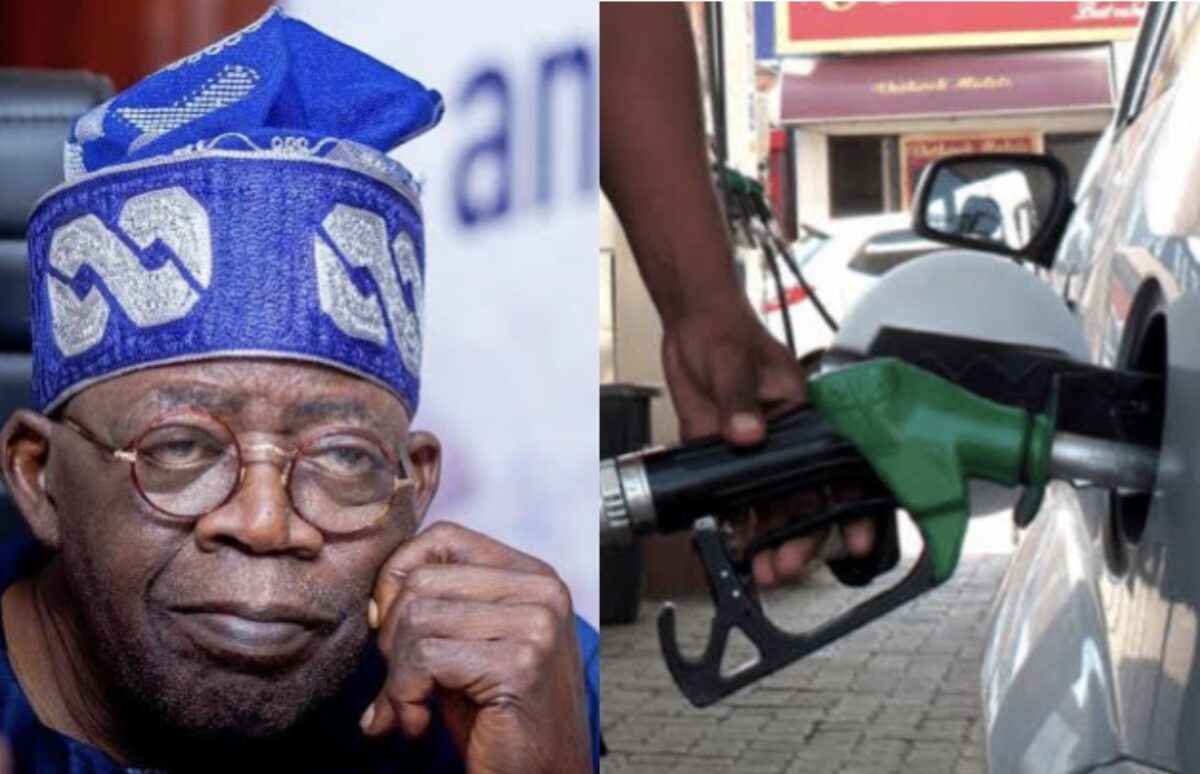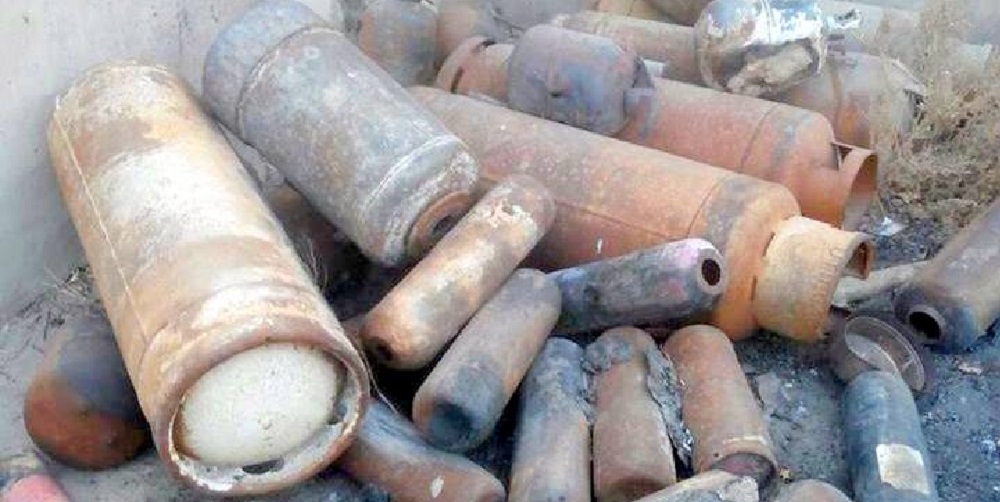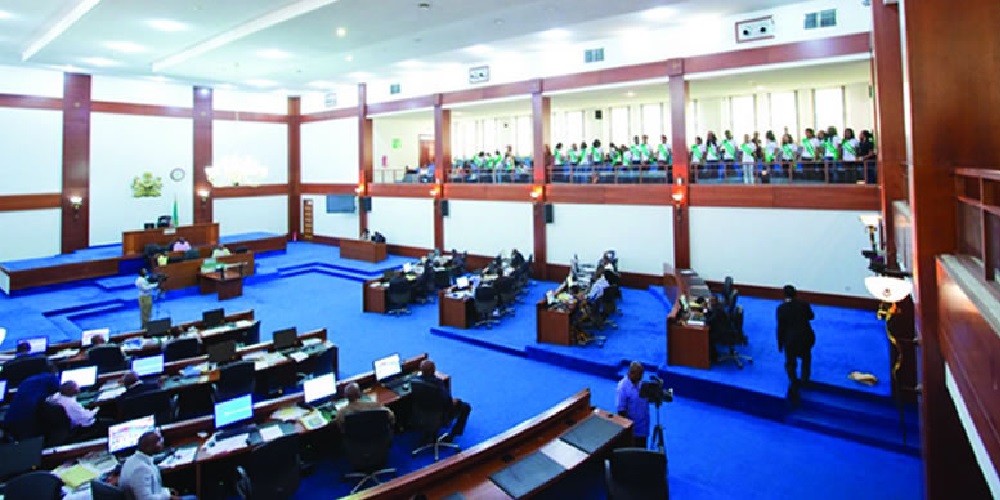News
FG Pays N1 Trillion Monthly As Petrol Subsidy — Pinnacle Oil MD

In a revelation that underscores the ongoing challenges in Nigeria’s oil sector, Pinnacle Oil and Gas Limited has disclosed that the country is incurring about N1 trillion every month on petrol subsidies.
This disclosure was made by the Managing Director/CEO of the indigenous oil and gas company, Robert Dickerman, during the Nigeria International Energy Summit (NIES) held in Abuja.
Despite the government’s efforts towards deregulation in the downstream sector, the persistence of such a hefty subsidy indicates a significant financial burden on the nation’s economy.
The subsidy mechanism, intended to make petrol affordable for Nigerians, has inadvertently resulted in the product being cheaper within the country compared to neighbouring nations.
This price disparity has been identified as a key driver for the smuggling of petrol across borders, further complicating the subsidy issue.
Speaking at the forum’s panel session six, which focused on Nigeria’s Downstream Sector, Dickerman highlighted the paradox that, despite substantial progress in the industry, the massive subsidy is a clear indication of the challenges still facing Nigeria’s oil and gas sector.
He said the situation not only affects the government’s finances but also impacts the operational dynamics of companies within the sector, like Pinnacle Oil and Gas, which operates across the entire downstream value chain.
Dickerman stated that the continued payment of subsidies at such a scale raises questions about the sustainability of such expenditures and the need for more effective policies to address the underlying issues.
He said, “Nigeria has a long history of allocating resources to oil and gas production at the expense of most other economic and social programs. To balance this, there has been a long-standing policy to mitigate consumer costs via palliatives such as fuel and food subsidies.
“But one of the net effects of oil money is underinvestment in local production, manufacturing and other value-added activities that could generate foreign currency through exports. There has also been a large under investment in the maintenance and upgrade of existing infrastructure including electricity, roads, health care, water, waste, education and financial infrastructure such as consumer credit.
As a result, we have a huge negative trade deficit, except for crude oil and LNG, and our banks are not sufficiently capitalized to support significant new capital programs.
“With legacy monetary policymaking currency exchange difficult, we desperately need Foreign Investment. This is a reality. So the best policy during this time of crisis is a national policy to transform our economy/regulations/laws to accommodate and encourage FDI.
“Foreign investors, foreign lenders and government-run DFIs have been very clear about what they want to see: Conservative fiscal policy, tackling corruption, enabling competitive markets, and enforcement of fairness in markets through policy, regulation and the ability to enforce contracts. Keeping that context in mind, I want to point out that there is still a massive subsidy in PMS, albeit in the FX portion of PMS Price, not the global price in dollars.
“The consequences of this subsidy are: The cost of gasoline in Nigeria is the lowest in Africa by far, which encourages smuggling out, further depriving Nigeria of value. Smuggling causes Nigeria to subsidize neighbouring countries even while our economy struggles. The cost is hurting the entire budget, Federal and State, as critical programs cannot be funded to pay this subsidy. It is currently calculated to be about 1 trillion Naira/month.
“Also, with this subsidy in place, ceasing subsidy payments would result in no petrol supply, if there are no refineries producing gasoline. All supplies come from the international market, which will only sell at market prices.
“There is no competition in bulk supply, as only the national champion owned by the government can import. Wholesale and retail prices are set based on their subsidized cost and they determine who gets supply. Without a competitive market, foreign investors are discouraged from investing in this sector in Nigeria.
“The solution to this problem seems obvious, even acknowledging the daily struggles most citizens and companies have today with reduced purchasing power, high inflation, high interest costs and high unemployment that exists today. Short-term palliatives have never resolved long-term issues in any nation at any time in history. We need long-term solutions.”
News
FG to arraign arrested bomb manufacturers as US partners on IED Centre

The United States (US) is working closely with the Federal Government to establish a counter Improvised Explosive Device (IED) centre in Nigeria.
The centre which will be similar to one set up by Britain in Maiduguri, Borno State, is to help Nigeria contain indiscriminate production of IEDs and boost anti-terrorism war in the country.
Coordinator of the National Counter Terrorism Centre (NCTC) Maj.-Gen. Adamu Laka made this known during a symposium on Countering Improvised IEDs in Abuja yesterday.
The symposium was organised by the centre, a unit in the Office of National Security Adviser(ONSA) in collaboration with the US and British governments.
Maj.-Gen. Laka stated the Federal Government’s collaboration with foreign partners was yielding positive results.
He said: ”What is the new thing that they(US) are going to do now?
‘’Like the British Government has established a counter IED centre in the Northeast, particularly in Maiduguri, we are working closely with the US Government on that also.
“They(Britain and U.S) have been training our troops for the past four years; and this has greatly impacted the proficiency of our troops in identifying IEDs, preventing such incidents and also reacting after such an incident.
‘’Samples are taken from the IED site to our laboratory at the centre to find out those materials that are used so that we will be able to know where our focus will be on restricting such materials getting into the wrong hands,” HE told reporters.
The NCTC boss revealed that some suspected manufacturers of IEDs were already being detained preparatory to their arraignment. He also said that ONSA has taken steps to regulate the use of materials like urea fertiliser in the Northeast, which terrorists use to manufacture explosives
Experts identify IEDs as a major threat to troops, civilians and infrastructure in the fight against terrorism in the country.
The NCTC Coordinator said: “ Insurgents can get things like urea fertiliser from the markets to manufacture IEDs and so on. But we won’t relent on our part. We will keep educating the populace.
“And on punishments for those who are manufacturing these IEDs, we have identified a few and they are presently awaiting to go through the judicial process.
‘’We won’t just punish them on our own. Nigeria is a signatory to international human rights laws and best practices, and so on. So we will follow the rule of law. They are innocent until proven guilty. So we have to go through the judicial process.”
Maj.-Gen. Laka assured Nigerians that the NCTC would remain proactive in its approach to tackling the menace of IEDs in the country.
“We are developing a biometric database at the Office of the National Security Adviser. We are working closely with all the security and intelligence agencies. This biometric database is going to be used to identify those who are experts in manufacturing IEDs.
‘’We are working closely with the US and British governments on that and other security and intelligence agencies,’’ he said.
The NCTC boss stated that the symposium was both timely and critical as it provided a platform for experts and stakeholders to deliberate on innovative strategies to counter-terrorism.
He said: “Our collective goal is to enhance national capabilities in preventing, detecting, and responding to Improvised Explosive Devices incidents.
“The provision of external expertise in this field would also complement Nigeria’s experience and proficiency in assessing whether a National Counter Improvised Explosive Devices Strategy would be beneficial for implementation in Nigeria. We must examine the existing gaps, address the vulnerabilities in our operational environments, and improve coordination among key agencies.”
US Ambassador to Nigeria Richard M. Mills, Jr. said Washington would continue to assist Nigeria to defeat the challenging threat of IEDs.
Mills was represented by the US Defence Attaché to Nigeria. Col. Thomas Brooks
News
Bill to designate official roles to Traditional Rulers scales second reading in Senate

A bill which seeks to establish the National Council for Traditional Rulers with the objective of formally giving monarchs and community heads important official roles has scaled second reading in Senate.
The bill was sponsored by Senator Simon Lalong (Plateau South).
The Bill generated widespread debate among lawmakers when it was first introduced, with concerns expressed over potential conflicts between the responsibilities of traditional rulers and elected officials at the Local Government level.
But Lalong, a former Governor of Plateau State, noted that present day traditional rulers are well-educated and can provide valuable counsel on issues such as insecurity and other national matters, which could assist the government in addressing the needs of the citizens.
The former Director-General of the Tinubu-Shettima Campaign Council also asserted that they would be useful in the areas of security and conflict resolution in local communities.
According to him: “When there are crises and killings, the first thing people say is ‘let’s hold the traditional ruler responsible.’ It is true in their communities, they know everybody, including the criminals. But we expect them to be the ones running up and down.
“We need to charge them with responsibilities where they will be committed. But for now, you can’t hold them responsible. As the director-general of the campaign for Asiwaju and Kashim, we went around having some meetings with these traditional rulers.
“Every time we want them to participate, they ask to be given a role. So, it was also part of our (electioneering) campaign.
“So, I don’t see how we can jettison that when we are struggling for a constitutional amendment with respect to security. If we don’t have security, every other thing we are doing is rubbish.”
However, some senators still expressed concerns about the possibility of overlapping duties and emphasised the need for the bill to clearly delineate the roles of traditional rulers and government officials to avoid confusion.
Senate President Godswill Akpabio stressed the importance of clearly defining the functions of traditional rulers within the bill.
He also suggested holding a public hearing to gather input before the bill proceeds to a third reading.
Akpabio noted the value traditional rulers could bring in providing counsel on a wide range of issues that could benefit the government.
Akpabio referred the bill to the Senate Committee on Establishment and Public Service Matters for further legislative work and to report back in four weeks.
News
Tax reforms Bills: Reps retain 7.5 percent VAT, snub proposal to increase it by 2030

The House of Representatives has retained Value Added Tax (VAT) at 7.5%, rejecting a proposed gradual increase to 15% by 2030. The House also dismissed a proposal to reintroduce inheritance tax under the guise of taxing family income.
Submitting the report during plenary in Abuja, the Chairman of the House Committee on Finance, Rep. James Faleke, stated that the report represents a comprehensive review of the bills, incorporating extensive public input.
The report covers four key bills aimed at overhauling Nigeria’s tax framework:
Nigeria Tax Bill
Nigeria Tax Administration Bill
Nigeria Revenue Service (Establishment) Bill
Joint Revenue Board (Establishment) Bill
Key Amendments in the Tax Reform Bills
Nigeria Revenue Service (NRS) Bill
Redefined Scope: The NRS will now focus on federal-level revenue collection, excluding individual taxpayers in states and the Federal Capital Territory (FCT).
Board Composition: Section 7 now requires six executive directors, each appointed by the president from the six geopolitical zones on a rotational basis. Each state and the FCT will also have a representative on the board.
Secretary Qualifications: Section 13 mandates that the Secretary to the Board must be a lawyer, chartered accountant, or chartered secretary at the level of Assistant Director or higher.
Fixed Funding Rate: The NRS will now receive a 4% cost-of-collection rate (excluding royalties), subject to National Assembly approval.
Borrowing Powers Restricted: Section 28 now requires Federal Executive Council (FEC) and National Assembly approval before the NRS can secure any loans.
Joint Revenue Board (JRB) Bill
Tax Appeal Commissioners’ Criteria Revised: Section 25 removes the requirement that commissioners must have business management experience, as the Committee deemed it irrelevant.
Strengthened Tax Ombud’s Independence: Section 43 mandates that the Tax Ombud’s Office be funded directly from the Consolidated Revenue Fund, eliminating reliance on external donations.
Independent Funding for Tax Appeal Tribunal (TAT): The tribunal will now operate independently of the Federal Inland Revenue Service (FIRS) to prevent conflicts of interest.
Stricter Adherence to the Evidence Act: New rules ensure that tax appeal proceedings strictly follow the Evidence Act.
Taxpayer Identification Number (TIN) Processing: The timeline for issuing TINs has been extended from two working days to five to accommodate administrative delays.
Faster Tax Returns for Ceased Operations: Companies ceasing operations must now file income tax returns within three months, down from six months, to prevent revenue loss.
VAT System Adjustments: Section 22 ensures that taxable supplies are attributed to their place of consumption, addressing regional imbalances.
VAT Fiscalisation System: Section 23 introduces a new regulatory framework to improve VAT collection.
Increased Reporting Thresholds for Banking Transactions:
Individuals: ₦25 million → ₦50 million
Corporate Entities: ₦100 million → ₦250 million
Judicial Oversight on Asset Seizure: Section 60 mandates that tax authorities must obtain a court order before seizing movable assets.
Mandatory Electronic Taxpayer Records Access: Section 61 formalizes the government’s right to access electronically stored tax records in line with modern practices.
New VAT Revenue Distribution Formula:
70% distributed equally among local governments
30% based on population
General Amendments Across Tax Bills
VAT Rate Maintained at 7.5% – The Committee rejected the proposal to gradually increase VAT to 15% by 2030.
Petroleum Gains Tax Reduced to 30% – Section 78 revises the tax rate on petroleum gains from 85% to 30%.
Excise Duty Provisions Removed – Excise duty-related provisions were deleted due to concerns about their negative economic impact.
Higher Turnover Threshold for Small Companies: A business will now be classified as a small company if its annual turnover is ₦100 million or less (asset cap remains at ₦250 million).
New Penalties for Virtual Assets Service Providers (VASPs): Stricter fines and potential license suspensions for non-compliant crypto and digital asset businesses.
While submitting the report, Rep. Faleke highlighted the importance of the tax reform bills in modernizing Nigeria’s tax system, boosting revenue collection, and fostering economic growth.
“These Bills are critical to implementing a modern, transparent, and efficient tax system that will support economic growth and improve revenue collection,” he said.
He added that the review process was extensive, incorporating input from the public and key government agencies, including:
Nigeria Export Processing Zones Authority (NEPZA)
National Agency for Science and Engineering Infrastructure (NASENI)
National Information Technology Development Agency (NITDA)
Tertiary Education Trust Fund (TETFund)
“We carefully examined every submission to ensure that public opinion was reflected in our recommendations. This process involved a thorough review of existing laws proposed for repeal or amendment,” Faleke noted.
The amendments impact key laws, including:
Companies Income Tax Act (CITA)
Value Added Tax Act (VAT Act)
Personal Income Tax Act (PITA)
Federal Inland Revenue Service (Establishment) Act
Petroleum Industry Act
Nigeria Export Processing Zones Act
Oil and Gas Free Trade Zone Act
The House of Representatives is expected to deliberate on the report in the coming weeks as part of its legislative process.
-

 Entertainment14 hours ago
Entertainment14 hours agoJust in: Court Orders immediate arrest of VDM
-

 Sports14 hours ago
Sports14 hours agoRonaldo pulls out from race to become president
-

 News14 hours ago
News14 hours agoSAD! Nigerian Man Slumps, D!es Inside S3x Worker’s Apartment
-

 News23 hours ago
News23 hours agoAnger in Edo as protesters hit street over Natasha’s suspension
-

 News16 hours ago
News16 hours agoNigerian Lady Trafficked To Iraq Allegedly Defiled By Boss Pleads For Help To Return
-

 News18 hours ago
News18 hours agoWike: After Fubara Demolished Assembly Complex How Can He visit there when he’s not invited
-

 News11 hours ago
News11 hours agoWike notifies me each time he wants to visit Assembly -Ex-Speaker
-

 News24 hours ago
News24 hours agoFubara whipping up sentiments, not sincere-Rivers Assembly






